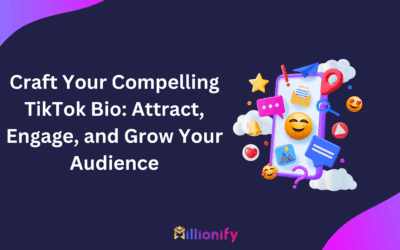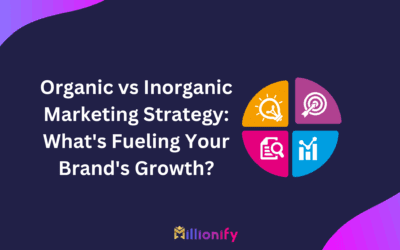In the dynamic realm of digital marketing, social media has emerged as a powerhouse for businesses seeking to expand their reach, engage their audience, and drive meaningful results. Leveraging social media marketing services is paramount in navigating this landscape effectively. This guide explores a diverse array of services tailored to optimize your social media presence and elevate your brand.
1. Organic Posting
Crafting compelling content and sharing it organically across social media platforms is the cornerstone of any successful social media strategy. Organic posting allows businesses to engage with their audience authentically and foster genuine connections without paid promotion.
2. Paid Social Media Ads
Harnessing the power of targeted advertising on social media platforms enables businesses to amplify their message and reach a wider audience. Paid ads offer precise targeting options, allowing businesses to tailor their campaigns to specific demographics, interests, and behaviors for maximum impact.
3. Engagement Ads
Encouraging audience interaction and fostering meaningful engagement is key to building a loyal community on social media. Engagement ads are designed to spark conversations, drive likes, comments, shares, and clicks, nurturing relationships and increasing brand loyalty.
4. Instagram Posts
With its visually-driven interface and engaged user base, Instagram presents a unique opportunity for businesses to showcase their brand through captivating imagery and video content. Tailoring posts to suit the platform’s aesthetic and preferences can enhance engagement and drive results.
5. Facebook Posts
As the largest social media platform globally, Facebook remains a powerhouse for businesses looking to connect with a diverse audience. Crafting engaging posts that resonate with your followers and leveraging the platform’s robust features can yield significant results.
6. Regular Posting
Consistency is key when it comes to maintaining a strong presence on social media. Regularly sharing content keeps your audience engaged, builds credibility, and reinforces brand awareness over time.
7. Direct Messaging (DM)
Personalized communication via direct messaging allows businesses to connect with their audience on a one-on-one level. Addressing inquiries, providing support, and nurturing relationships through DMs can enhance customer satisfaction and loyalty.
8. Comments and Replies
Engaging with comments, mentions, and replies on social media posts demonstrates your commitment to fostering community and dialogue. Prompt and thoughtful responses help build rapport with your audience and encourage ongoing engagement.
9. Influencer Collaborations
Partnering with influencers and industry experts can amplify your brand’s message and reach a broader audience. Leveraging their credibility and influence can drive engagement, increase brand awareness, and foster trust among your target demographic.
10. Content Creation and Curation
Creating and curating high-quality content tailored for social media platforms is essential for capturing audience attention and driving engagement. Diversifying content formats and aligning them with your audience’s interests and preferences can enhance effectiveness.
11. Social Media Management
Efficiently managing your social media presence involves overseeing all aspects of your strategy, from content creation and scheduling to engagement and analytics tracking. Utilizing management tools and strategies streamlines processes and maximizes efficiency.
12. Analytics and Reporting
Analyzing key metrics and performance data provides valuable insights into the effectiveness of your social media efforts. Monitoring reach, engagement, and conversion metrics allows you to refine your strategy and optimize performance for better results.
Conclusion
In conclusion, harnessing the power of social media marketing services is essential for businesses looking to thrive in today’s digital landscape. From organic posting and paid advertising to influencer collaborations and analytics tracking, each service plays a crucial role in achieving your marketing objectives and driving meaningful results.
FAQs (Frequently Asked Questions)
- How can businesses determine which social media platforms are best suited to their needs?
- Determining the most suitable social media platforms for your business depends on various factors, including your target audience demographics, industry niche, and marketing objectives. Conducting market research to understand where your audience spends their time online and analyzing the strengths and weaknesses of each platform can help you make informed decisions. Additionally, testing different platforms and monitoring performance metrics can provide valuable insights into which platforms resonate best with your audience and deliver the highest ROI.
- What are the benefits of outsourcing social media marketing services versus managing them in-house?
- Outsourcing social media marketing services to specialized agencies or freelancers offers several benefits, including access to expertise and resources, cost-effectiveness, scalability, and efficiency. External professionals bring industry knowledge, creative skills, and experience managing social media campaigns, allowing businesses to focus on their core operations while leveraging the expertise of seasoned professionals. Additionally, outsourcing provides flexibility and scalability, enabling businesses to adapt to changing market trends and scale their social media efforts as needed.
- How can businesses measure the return on investment (ROI) of their social media marketing efforts?
- Measuring the ROI of social media marketing efforts involves tracking key performance indicators (KPIs) and analyzing the impact of social media activities on business objectives, such as brand awareness, website traffic, lead generation, and sales. Utilizing analytics tools and tracking platforms, businesses can monitor metrics such as reach, engagement, click-through rate (CTR), conversion rate, and revenue generated from social media campaigns. By attributing revenue to specific social media channels and campaigns, businesses can calculate the ROI and evaluate the effectiveness of their social media marketing efforts.
- What role does audience targeting play in the success of social media advertising campaigns?
- Audience targeting is a critical component of successful social media advertising campaigns, as it allows businesses to reach the most relevant audience segments with tailored messaging and offers. By leveraging advanced targeting options available on social media platforms, such as demographic information, interests, behaviors, and location, businesses can ensure their ads are seen by the right people at the right time. Effective audience targeting increases ad relevance, engagement, and conversion rates, ultimately driving better ROI for social media advertising campaigns.
- How can businesses ensure consistency in their social media branding and messaging across different platforms?
- Maintaining consistency in social media branding and messaging is essential for building brand recognition, trust, and loyalty among your audience. Establishing brand guidelines that outline your brand voice, tone, visual identity, and messaging principles ensures consistency across all social media platforms. Utilizing templates, style guides, and content calendars helps streamline content creation and ensures coherence in your brand’s online presence. Regularly monitoring and auditing your social media channels to ensure adherence to brand guidelines and messaging standards helps maintain consistency and reinforces your brand’s identity across different platforms.


